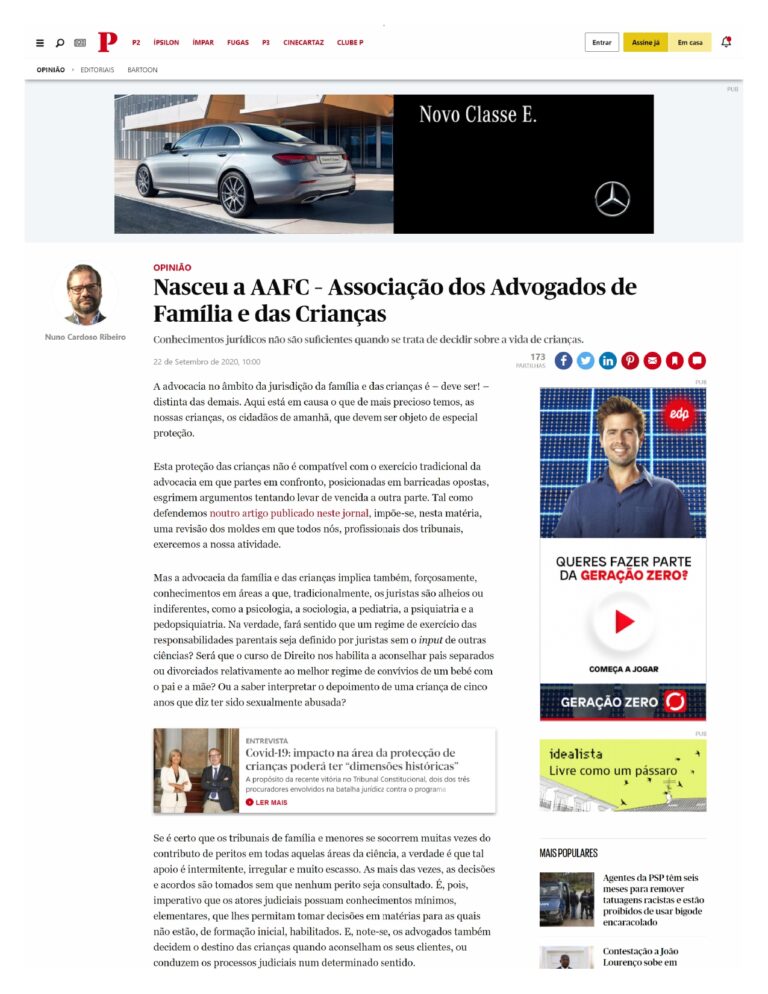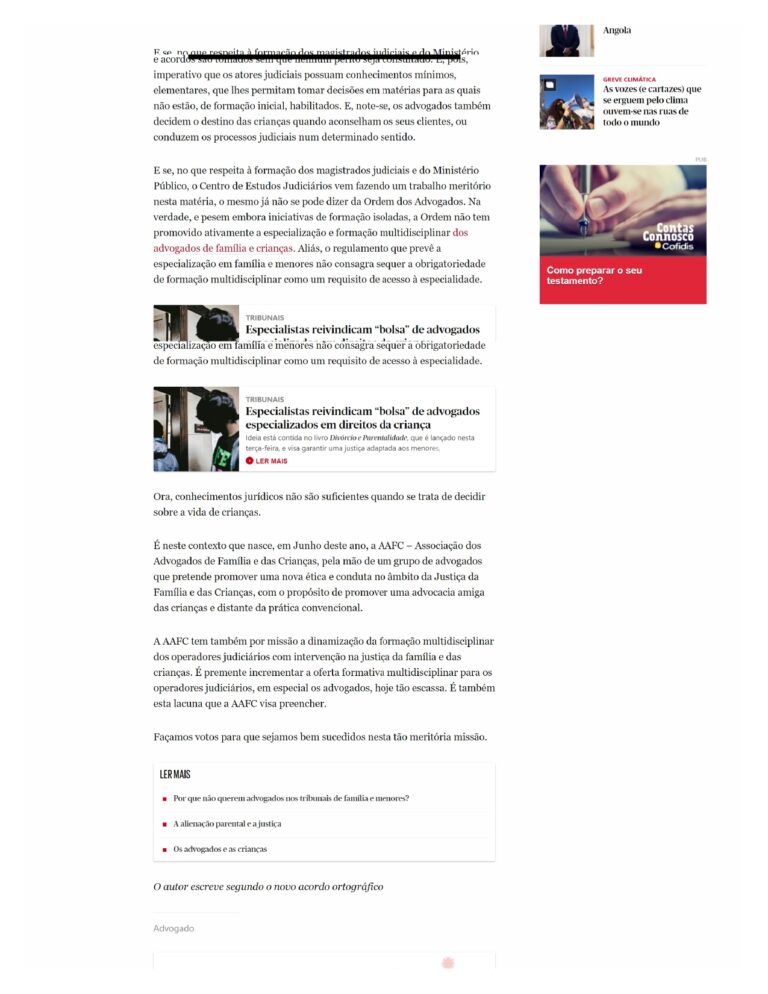Opinion article by our coordinator, Nuno Cardoso-Ribeiro, in the Público newspaper of 22/09/2020 regarding the Association of Family and Children Lawyers (AAFC). Read the article on Público’s website or the translation and pdf below:
“AAFC – Association of Family and Children’s Lawyers was born
Legal knowledge is not enough when it comes to deciding about the lives of children.
Advocacy in the field of family and children’s law is – should be! – distinct from the others. What is at stake here is the most precious thing we have, our children, the citizens of tomorrow, who must be given special protection.
This protection of children is not compatible with the traditional practice of law in which opposing parties, positioned at opposite ends of the barricades, engage in argumentation in an attempt to defeat the other party. As we have argued in another article published in this newspaper, what is needed, in this matter, is a review of the ways in which all of us court professionals carry out our activities.
But advocacy for the family and children also necessarily implies knowledge in areas that lawyers are traditionally unaware of or indifferent to, such as psychology, sociology, pediatrics, psychiatry and child psychiatry. In fact, does it make sense that a regime for the exercise of parental responsibilities should be defined by jurists without the input of other sciences? Does a law degree qualify us to advise separated or divorced parents as to the best regime of cohabitation of a baby with its father and mother? Or how to interpret the testimony of a five-year-old child who claims to have been sexually abused?
While it is true that family and juvenile courts often rely on the contribution of experts in all those areas of science, the truth is that such support is intermittent, irregular and very scarce. More often than not, decisions and agreements are made without consulting any experts. It is therefore imperative that court actors possess the minimum, elementary knowledge that will enable them to make decisions on matters for which they are not, from their initial training, qualified. And, it should be noted, lawyers also decide the fate of children when advising their clients, or conducting legal proceedings in a certain direction.
And if, as far as the training of magistrates and public prosecutors is concerned, the Judicial Studies Center has been doing a commendable job in this area, the same cannot be said of the Bar Association. In fact, and despite isolated training initiatives, the Bar Association has not actively promoted the specialization and multidisciplinary training of family and children lawyers. In fact, the regulation that provides for specialization in family and children does not even enshrine the requirement for multidisciplinary training as a requirement for access to the specialty.
However, legal knowledge is not enough when it comes to deciding about the lives of children.
It is in this context that the AAFC – Association of Lawyers for Family and Children was born in June of this year, by the hand of a group of lawyers who intend to promote a new ethic and conduct in the field of Family and Children Justice, with the purpose of promoting a child-friendly law practice far removed from conventional practice.
The AAFC also has as its mission the dynamization of multidisciplinary training for legal operators with intervention in the justice system and for children. There is an urgent need to increase the multidisciplinary training offer for judicial operators, especially lawyers, which is so scarce today. It is also this gap that the AAFC aims to fill.”

